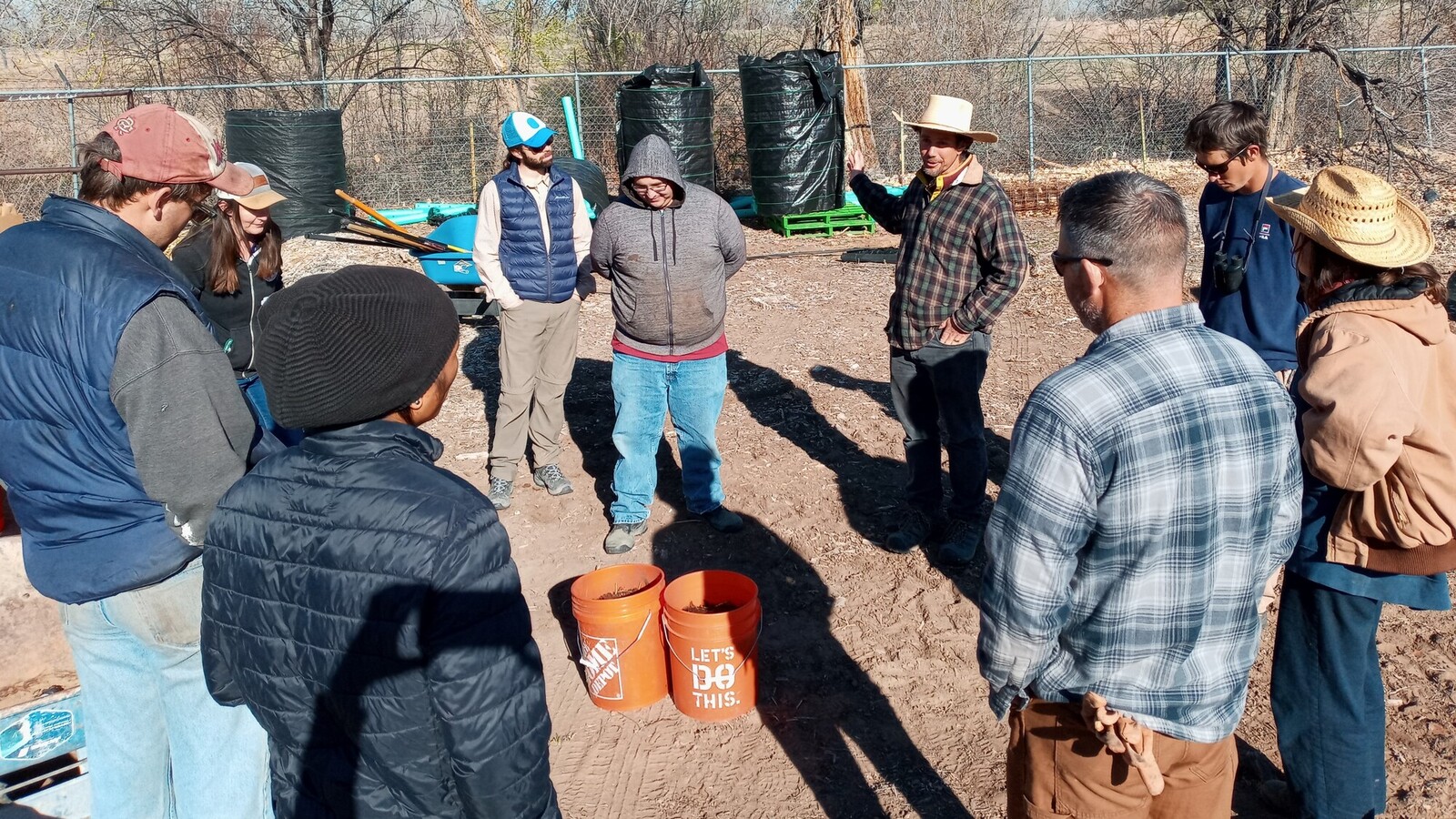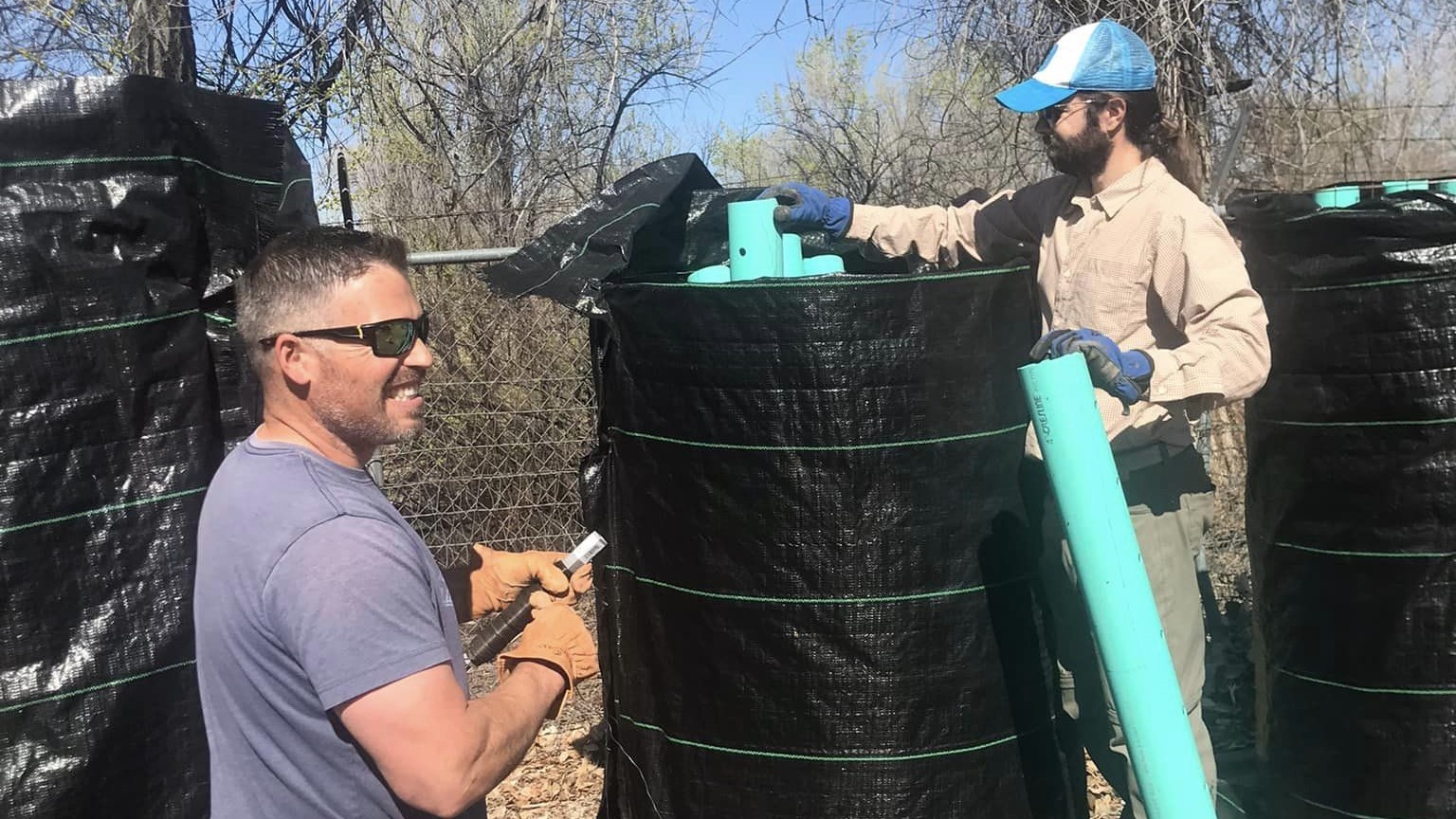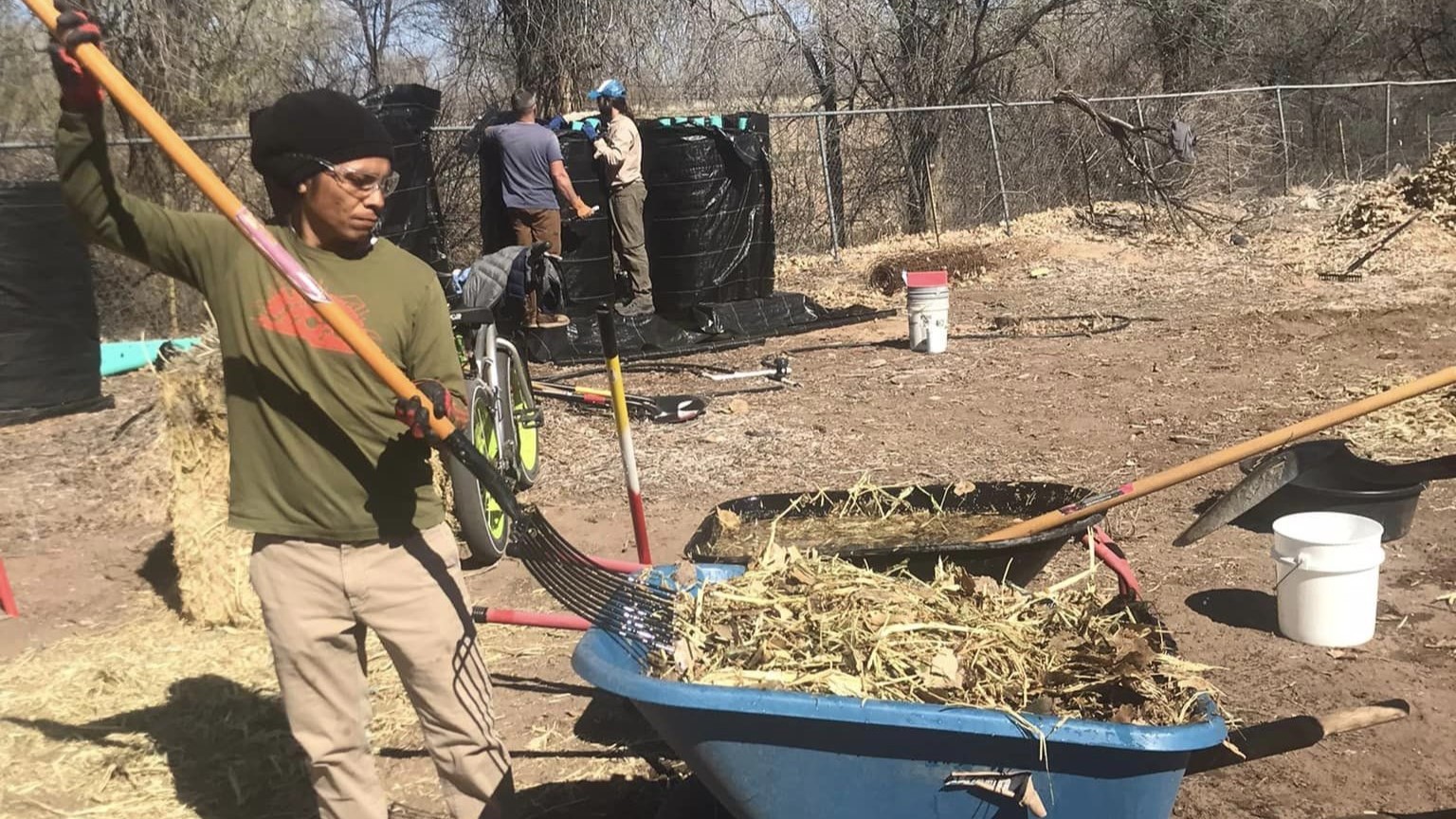
Matthew Draper introduces bioreactors to interested farmers. Angelina Lopez-Brody
On a beautiful spring day in New Mexico in March 2024, Matthew Draper of North Valley Organics led five farmers and his own three-man crew in the why’s and how’s of building Johnson-Su Bioreactors. Johnson-Su Bioreactors generate amazingly micro-biodiverse compost.
Professor David Johnson of New Mexico State University and his wife, Hui-Chun Su Johnson, designed the technology in New Mexico’s unique high desert climate. This win-win appropriate technology helps both production and the climate.
At North Valley Organics, a year after application of the first Johnson-Su Bioreactor compost, production had increased 50%, according to Draper. He readily admits that there are many factors in production, but such a marked increase is certainly worth noting.
“On a small farm, every square foot counts in making the economics feasible,” Draper says. He focuses on keeping “the critters in the soil happy,” because healthy soil will feed robust crops.

Prepping the bioreactor Sayrah Namaste
The fungus and healthy bacteria present in Johnson-Su compost can encourage fungally-dominated soil, which does a fantastic job of pulling carbon out of the atmosphere and storing it as a liquid.
When you look at this kind of soil, you can see white mycelia threaded through it, holding it together. In addition, biodiverse soil retains more moisture – every drop of which matters as climate science predicts 25% less precipitation in the Middle Rio Grande over the next 100 years.
Farmers helped build two bioreactors to conduct an on-farm experiment to compare the results from chipped and non-chipped compost material – this will help them understand its applicability to circumstances where a chipper might not be available.
Because Draper, an experienced farmer, has worked with the bioreactors on his farm for several years, farmer attendees could ask questions about his experience and recommendations. Draper also credits Minor Morgan, his farming mentor, with helping him tap into the technology.
AFSC New Mexico is providing each farmer who attended the workshop with materials to build their own bioreactor. Draper provided seasoned compost to inoculate and kick start their bioreactors. We look forward to learning and sharing about its effect on small farms’ soil health as they implement it.

Getting the material wet Sayrah Namaste